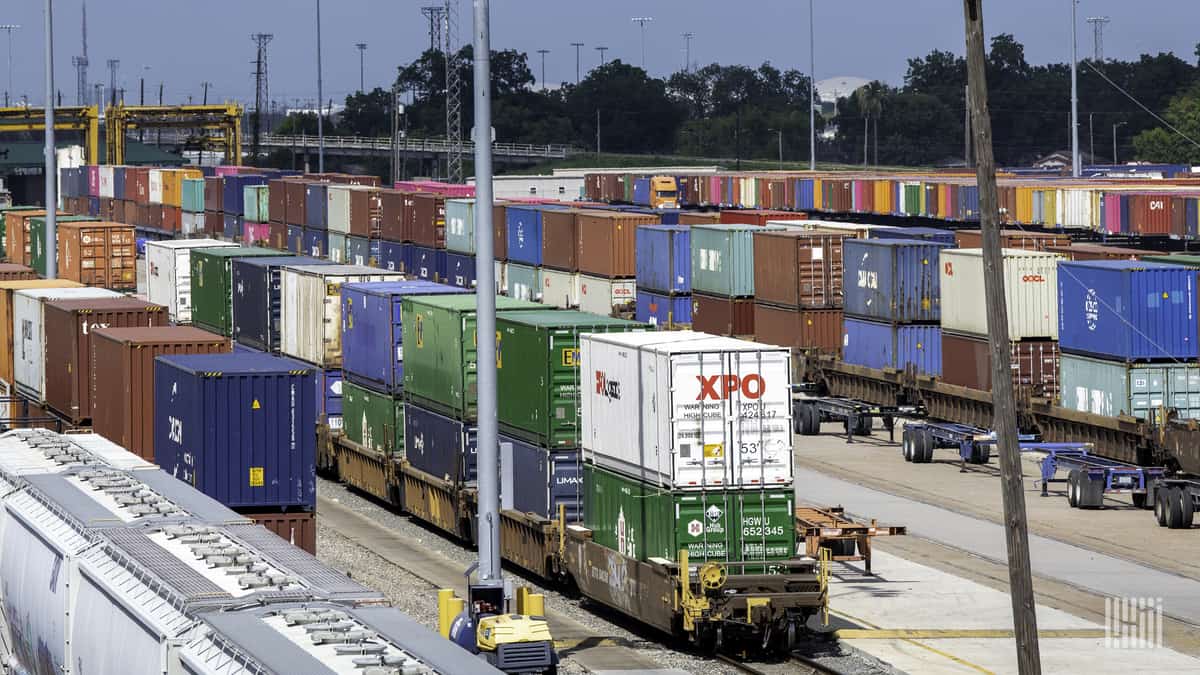
Intermodal Transportation Services
Reliable Nationwide Intermodal Freight Solutions
At DOF Ground, we specialize in intermodal transportation services that combine truck and rail logistics for cost-efficient, reliable, and sustainable freight shipping. With our nationwide network of carriers and rail partnerships, we help businesses move freight faster, reduce costs, and increase supply chain efficiency.
Intermodal Shipping Services
At DOF Ground, we specialize in reliable and cost-effective intermodal shipping solutions that connect rail and trucking services for maximum efficiency. By combining multiple modes of transportation, we help businesses reduce costs, streamline operations, and move freight seamlessly across the country
Why Choose Our Intermodal Services?
Nationwide Coverage – Seamless intermodal freight shipping across the U.S.
Cost Savings – Optimize transportation costs by balancing rail and truck capacity.
Sustainable Shipping – Reduce carbon footprint with eco-friendly intermodal logistics.
Custom Solutions – Dedicated support for retail, manufacturing, automotive, and consumer goods supply chains.
On-Time Performance – Real-time tracking and professional coordination ensure timely deliveries.
What Is Intermodal Shipping?
Intermodal shipping refers to moving freight by two or more modes of transportation. By loading cargo into intermodal containers, shipments can move seamlessly between trucks, trains and cargo ships. Intermodal shipments typically fall into one of two categories: international intermodal or domestic intermodal. International intermodal shipments travel in 20- or 40-foot containers. As international intermodal shipments travel between ocean carriers, trucks and trains, the product stays in the same container for the entirety of the trip. Domestic intermodal shipments travel in 53-foot containers. Although these shipments are referred to as “domestic intermodal,” products may still arrive from overseas. The key difference is that after products arrive at a port in 20- or 40-foot international containers, they are transferred to 53-foot domestic containers, whether at a cross dock facility, transload facility or distribution center. From there, they travel to inland (i.e., “domestic”) destinations..
What Are the Benefits of Intermodal Shipping?
Truck + Rail Integration – Flexible and efficient freight options.
Scalable Capacity – Handle seasonal surges and long-haul shipments without delays.
Improved Security – Lower handling reduces risk of damage.
Cross-Border Capabilities – Intermodal freight solutions for U.S., Mexico, and Canada.
So, why should shippers care about intermodal shipping? Putting these benefits together, intermodal can offer shippers a smart alternative to shipping by truck alone. Intermodal shipping gives companies access to rail even when their facility or their customer’s facility doesn’t have tracks at their door, allowing them to reap the benefits of rail without any capital investment.